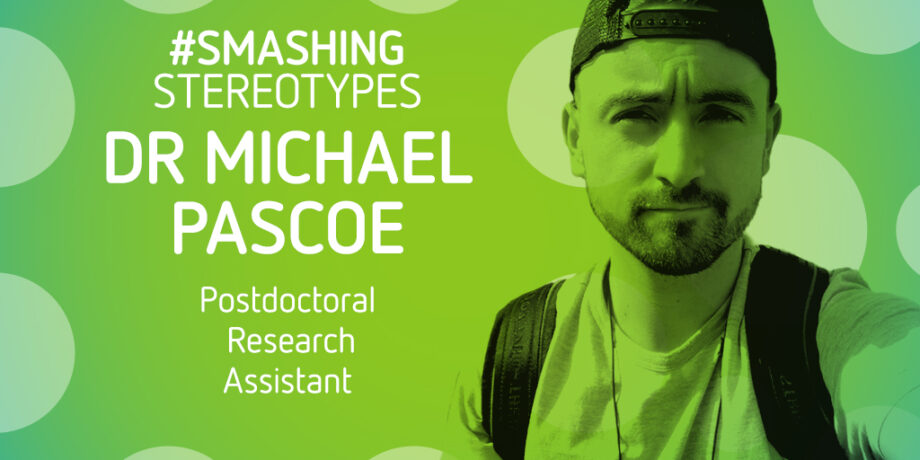
Dr Michael Pascoe
Postdoctoral Research Assistant
Michael is a 27-year old gay man from Cornwall. After completing his doctoral degree in Cardiff University, he started a job as a researcher in the field of pharmaceutical microbiology. Michael is also interested in public engagement and science in the media; last year he took part in the British Science Association’s Media Fellowship scheme.*
The biggest barrier I had entering the STEM world was believing in myself. Secondary school was quite difficult for me as a teenager. I was still finding out who I was and being gay wasn’t as accepted back then as it is now. Once I came out, it felt like a weight had been lifted off my shoulders and I could be the person I was meant to be. I enjoyed school much more after that and could finally concentrate on studying.
I really enjoyed design technology classes at school since I liked developing products and ideas. After getting decent results in AS Biology and Chemistry, I looked into careers in science and realised there was a lot of crossover. I decided to study “Biomedical Science” at university since I was interested in human health and disease.
I never planned to go into research but the more I studied, the more I realised that research can solve a lot of problems in the world.
I’m a microbiologist and research new ways to kill germs. A lot of my work is “translational”, which means apply science in practical ways to solve specific problems. On a normal day, I spend most of my time in the lab doing experiments. I work on a few different projects at the same time so I’m always learning new techniques. Outside of the lab, I write research journal articles, design conference posters and travel to other countries to let other scientists know what I’ve discovered.
There are definitely a lot of enjoyable parts to my job. I am curious by nature and really enjoy the satisfaction of finding out how something works. Working on translational projects can be especially rewarding since your research can make a positive impact on people’s lives. I also get to organise my time how I’d like so there’s a lot of freedom in how I work.
There are a lot of stereotypes out there in the STEM world, and working in STEM doesn’t mean you’re a genius who can memorise loads of facts. It really means being honest about what you don’t know, suggesting reasonable explanations and then trying to find ways to work out the answer. Curiosity, creativity and attention to detail are all important traits for a scientist and the research community really benefits from diverse backgrounds and opinions.
If there is one bit of advice I have for students, it’s that STEM careers can be really rewarding. You get to meet lots of different people from around the world and have unique opportunities which you don’t get in other fields. Research isn’t a particularly secure career, so it’s good to keep your options open. Look into degree programs which are accredited by a professional body (e.g. MSc Pharmacy). This way, you’ll be qualified for a specific career after you graduate. You can always transition into research from these degrees, but you can’t go into these jobs from a non-accredited program.
__
Click here to go back to view more scientists who are Smashing Stereotypes.
* The information featured in this profile was last updated in March 2020.
The Smashing Stereotypes campaign is supported by 3M.